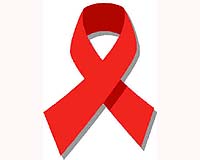| . |  |
. |
Cancun (AFP) July 3, 2009 The World Health Organization (WHO) and developing nations called Friday during a swine flu summit here for measures to ensure poorer countries have access to a future A(H1N1) vaccine. Laboratories with the capacity to produce a vaccine for swine flu, which has developed into the first pandemic of the 21st century, are mostly located in Europe. This has "obvious implications for the developing world," according to Jon Kim Andrus, an expert from the Pan American Health Organization (PAHO). "The producers of the vaccine have already committed 90 percent to high income countries, where some 893 million people live, and 10 percent to countries like China and Russia, which have some capacity to produce some of the vaccines," Andrus said during a closed-door summit session, according to an assistant who spoke to AFP. "If they began marketing the vaccine right now, developing countries would not get any," Andrus said. A two-pronged strategy is being developed to prevent that scenario, with the WHO and PAHO negotiating with vaccine producers to secure donations or sales at lower prices for developing countries and richer nations being asked to donate some of their vaccine stocks. Margaret Chan, director general of WHO, said thanks to an agreement "with two companies, 250 million doses" will be sent to developing countries, but she also acknowledged that the amount "is obviously not enough." During closed-door sessions in Cancun, Chan made a strong call for rich countries to avoid hoarding future vaccine stocks, according to Spanish Health Minister Trinidad Jimenez and Venezuelan Deputy Health Minister Nancy Perez, who spoke to AFP. Neither Spain nor Venezuela has the capacity to produce a swine flu vaccine. The vaccine, Jimenez said, must "reach all countries, not only those who have purchasing power but also those that have no access, not only because of the ethical imperative, but also because it is the only solid way to respond to a pandemic in a globalized world." Spain's government called for the WHO, together with the European Union, to reserve a portion of vaccine stock to be purchased for developing countries. "We cannot allow a massive reservation of stocks for purchase by a few countries," said Jimenez, whose country will not be able to build a laboratory capable of producing vaccines until 2012. "The countries of the south can not be discriminated against in the distribution of the vaccine, which must be done within the framework of fairness and justice," added Venezuela's Perez. Chan said that "in effect, a high percentage of production is already committed," said Perez, who added that she expects the WHO head to be a "fair representative" for developing countries seeking access to the vaccine. Along similar lines, Mexican Health Minister Jose Angel Cordova called Friday for "solidarity so that money is not the only factor in producer decisions about the distribution of the vaccine." Mexico was the epicenter of the pandemic and remains the second worst-affected country after the United States. More than 10,000 people in Mexico have been infected with the virus and 119 have died, while there are 23,902 confirmed cases of infection in the United States, and 170 US deaths, according to WHO figures. The illness has also spread around Latin America, with Colombia on Friday reporting its number of cases had risen to 101. And in Paraguay health services were overwhelmed as hundreds of panicked patients, mainly children, flooded health care centers seeking treatment for different respiratory illnesses. One person has died out of 210 cases there. AFP requested interviews with US government representatives at the Cancun meeting, but a spokesman from the US embassy in Mexico said Washington has "no position" as yet on the distribution of vaccines. The high-level meeting on swine flu, which closes Friday, brought together experts and government representatives from around the world, but did not include representatives from laboratories capable of producing an A(H1N1) vaccine. Share This Article With Planet Earth
Related Links Epidemics on Earth - Bird Flu, HIV/AIDS, Ebola
 Economic crisis a 'major threat' to AIDS fight in Africa: UN
Economic crisis a 'major threat' to AIDS fight in Africa: UNSirte, Libya (AFP) July 2, 2009 The global economic crisis poses a "major threat" to the fight against AIDS in Africa as funding for treatment programmes dries up, a top UN official said Thursday. Michel Sidibe, the head of the UNAIDS agency, told reporters on the sidelines of an African Union summit in Libya that 96 percent of Africans receiving AIDS medications depend on aid from rich countries. "The global economic ... read more |
|
| The content herein, unless otherwise known to be public domain, are Copyright 1995-2009 - SpaceDaily. AFP and UPI Wire Stories are copyright Agence France-Presse and United Press International. ESA Portal Reports are copyright European Space Agency. All NASA sourced material is public domain. Additional copyrights may apply in whole or part to other bona fide parties. Advertising does not imply endorsement,agreement or approval of any opinions, statements or information provided by SpaceDaily on any Web page published or hosted by SpaceDaily. Privacy Statement |